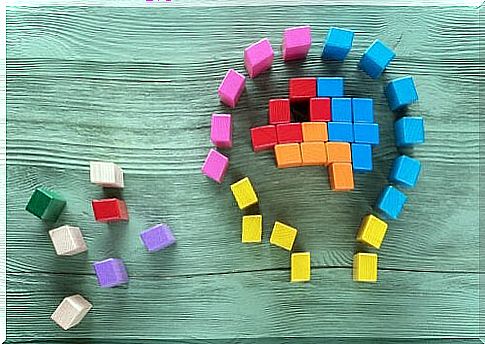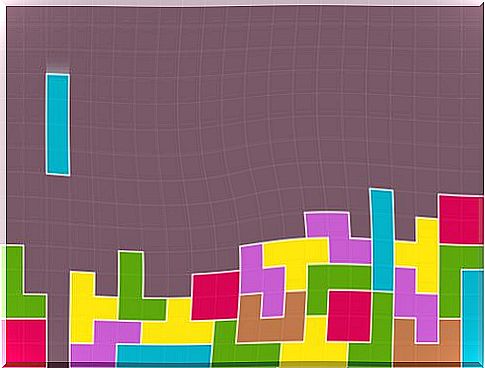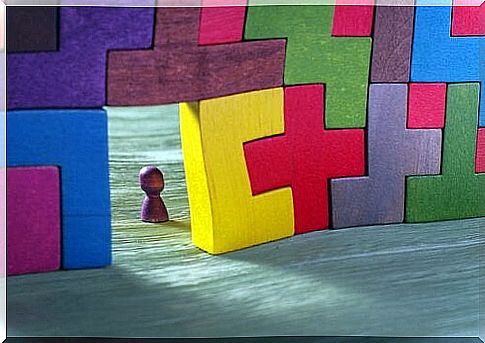The Tetris Effect

The activities we do in our daily lives have the power to change our thoughts. The more time we spend on something, the more that thing affects the way we see the world. So in some cases this influence can get to be very great. This is the case with what is called the Tetris effect.
The Tetris effect takes its name from the famous video game where the goal is to assemble different figures all formed by four cubes so that there is no void or space between them. It is one of the most addicting video games of all time; people of all ages have dedicated hundreds of hours to it. And according to some studies conducted on the subject, it could have changed their minds too.
In this article, you will learn more about what the Tetris effect is about, as well as what situations it can come up with. While not a dangerous thing, this effect does say a lot about the way the mind works. Thus, knowing more about this mental phenomenon will help you better understand its influence.
What is the Tetris effect?
Tetris has been one of the most studied video games in the history of psychology. The way it is designed has allowed us to learn more about certain types of memory, attention, but also information processing. Now, without a doubt, one of its most interesting effects is the effect it has on the way we perceive the world.
Various studies have shown that playing Tetris for a long time can change our thoughts, mental images and dreams. The people who devote a lot of time to this activity were at the center of his influence. Thus, many have come to perceive the world in the same way as in video games.

So, people who frequently play Tetris have found themselves wondering how to put together different real world objects. For example, they were looking for ways to better order supermarket shelves or trying to visualize how different buildings would fit together if they could move them. Sometimes they even had hallucinations in which they saw imaginary shapes falling from the sky.
For others, the Tetris effect led them to see these pieces in their dreams, or even, with closing their eyes, in the form of hypnagogic images. None of these symptoms caused any problems for those who exhibited them. However, researchers were interested in how a simple game could change our perception.
Why does this effect occur?
For some psychologists, the Tetris effect is nothing more than a matter of habit. Some players could devote many hours to this hobby. As a result, their minds would have become accustomed to seeing the world as figures that can fit together. In that sense, it would be nothing more than a special type of procedural memory.
On the other hand, various studies that have used magnetic resonances to scan the brain have found that Tetris has a direct effect on the configuration of this organ. So, for example, an experiment carried out in 1994 by Okagaki and Frensch showed that playing 12 games of 30 minutes each could make brain gray matter more dense.
This component of the brain is directly related to intelligence, cognitive flexibility, and another set of abilities. This is why we came to the conclusion that playing Tetris could help improve our mental skills. In this sense, the Tetris Effect would be something very positive for people who are under its influence.

Other cases of the Tetris effect
The change in the way we think and perceive the world is not only evident when playing this video game. On the contrary, there are many activities capable of altering the way in which information is processed.
Thus, certain activities such as those consisting of making a Rubik’s Cube at full speed (a practice known as speedcubing) or even using programming languages can respectively modify our visual perception or the way we use logic. The same thing happens with mathematics: at an advanced level, it can change the way of understanding reality in those who study it.
This effect can also involve other senses. Thus, the phenomenon known as “earth sickness” (the feeling, upon reaching the firm end after a boat trip, that everything is moving) would also be a type of Tetris effect. What is certain is that many more studies will be carried out on this subject; This is just the beginning. However, the discovery of this effect gives us an idea about the true potential of our brain.









